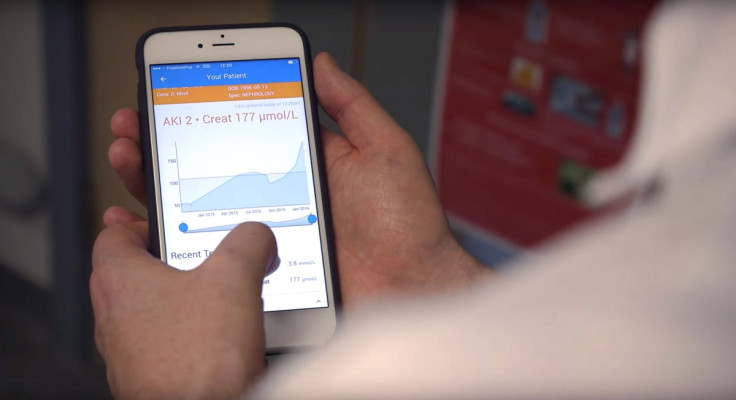Google AI neural network DeepMind and NHS develop Streams app to revolutionise patient care

Google's artificially intelligent neural network of computers has teamed up with the UK's National Health Service (NHS) to power a new smartphone app that aims to transform patient care by greatly speeding up how hospital staff are alerted to patients at risk of deterioration or death through kidney failure.
The DeepMind neural network will be used to run Streams, which is based on Hark, an app that has been developed by surgeon and former health minister Professor Lord Ara Darzi and a team of researchers at the Institute of Global Innovation at Imperial College London since 2010.
According to NHS research, acute kidney injury (AKI) is one of the most common complications affecting hospital inpatients around the world, contributing to up to 20% of all emergency hospital admissions and 40,000 deaths in the UK every year.
However, it is estimated that about 25% of all the cases could have been prevented, and research published by the Imperial researchers in the journal Surgery found that effective care has been delayed in up to 50% of patients who are at risk of significant deterioration, simply because of poor communication between hospital staff.
Google DeepMind to develop Hark app further
So rather than nurses and doctors having to cope with multiple handwritten notes as well as digital records and being paged by various different staff, the Streams app is meant to compile all that data in one place.
This means that doctors can instantly see the results for various crucial tests within seconds of the results becoming available, rather than having to drop what they are doing to go to the lab or wait for someone to bring them the results.
Early pilots of the Hark app have already been conducted at St Mary's Hospital in London, and an Imperial study showed that clinicians were able to respond to patients 37% faster using the app over the pager system, and the DeepMind neural network will be able to improve the process by powering the brains of the app to crunch data on multiple patients and evaluate the level of their care in real time.
"This has the potential to transform healthcare delivery, but as clinicians and researchers we can only take digital solutions like this so far. To build and scale these tools across the NHS we need to work with the world's leading technologists who share our commitment to safe and high quality care for all," said Lord Darzi.
There's still so much DeepMind has yet to achieve
Google continues to research and create different algorithms to train the DeepMind neural network, and some of its experiments have had rather amusing results. For instance, the computer scientists built image-recognition software to enable the neural network to see shapes in images, resulting in some fantastical psychedelic pictures.
The network also managed to teach itself to play 31 retro arcade video games, although it was unable to master Pac-Man. And most recently, the neural network was able to solve a puzzle that is used in Google job interviews all by itself by learning about communication protocols.
© Copyright IBTimes 2025. All rights reserved.






















